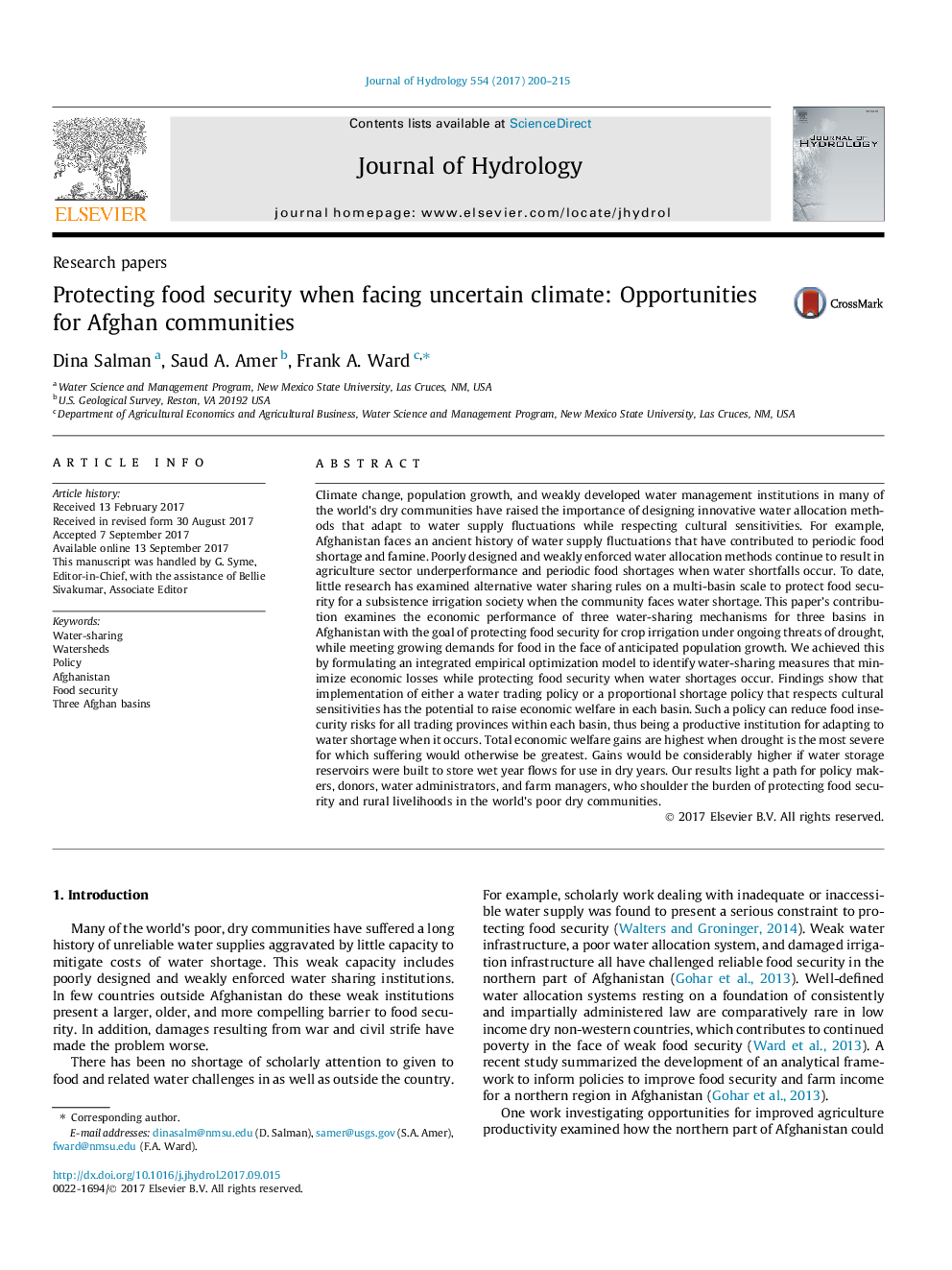| کد مقاله | کد نشریه | سال انتشار | مقاله انگلیسی | نسخه تمام متن |
|---|---|---|---|---|
| 5771093 | 1629900 | 2017 | 16 صفحه PDF | دانلود رایگان |
- We investigate the economic performance of three water-sharing methods.
- The water sharing mechanisms are tested for three Afghan basins.
- An integrated empirical optimization model is developed and applied.
- Findings show that a water-trading program contributes to food and water security.
Climate change, population growth, and weakly developed water management institutions in many of the world's dry communities have raised the importance of designing innovative water allocation methods that adapt to water supply fluctuations while respecting cultural sensitivities. For example, Afghanistan faces an ancient history of water supply fluctuations that have contributed to periodic food shortage and famine. Poorly designed and weakly enforced water allocation methods continue to result in agriculture sector underperformance and periodic food shortages when water shortfalls occur. To date, little research has examined alternative water sharing rules on a multi-basin scale to protect food security for a subsistence irrigation society when the community faces water shortage. This paper's contribution examines the economic performance of three water-sharing mechanisms for three basins in Afghanistan with the goal of protecting food security for crop irrigation under ongoing threats of drought, while meeting growing demands for food in the face of anticipated population growth. We achieved this by formulating an integrated empirical optimization model to identify water-sharing measures that minimize economic losses while protecting food security when water shortages occur. Findings show that implementation of either a water trading policy or a proportional shortage policy that respects cultural sensitivities has the potential to raise economic welfare in each basin. Such a policy can reduce food insecurity risks for all trading provinces within each basin, thus being a productive institution for adapting to water shortage when it occurs. Total economic welfare gains are highest when drought is the most severe for which suffering would otherwise be greatest. Gains would be considerably higher if water storage reservoirs were built to store wet year flows for use in dry years. Our results light a path for policy makers, donors, water administrators, and farm managers, who shoulder the burden of protecting food security and rural livelihoods in the world's poor dry communities.
Journal: Journal of Hydrology - Volume 554, November 2017, Pages 200-215
